Papers and Briefs
November 2020
-

ILO Working paper 15
The Transformation of the Mexican Labour Regulation Model and its link to North American Economic Integration
23 November 2020
This paper examines the different phases and changes of the Mexican labour regulation model. It analyses the extent to which trade liberalization was pivotal in the recent labour regulation reforms – particularly in the area of freedom of association and collective bargaining –.
October 2020
-
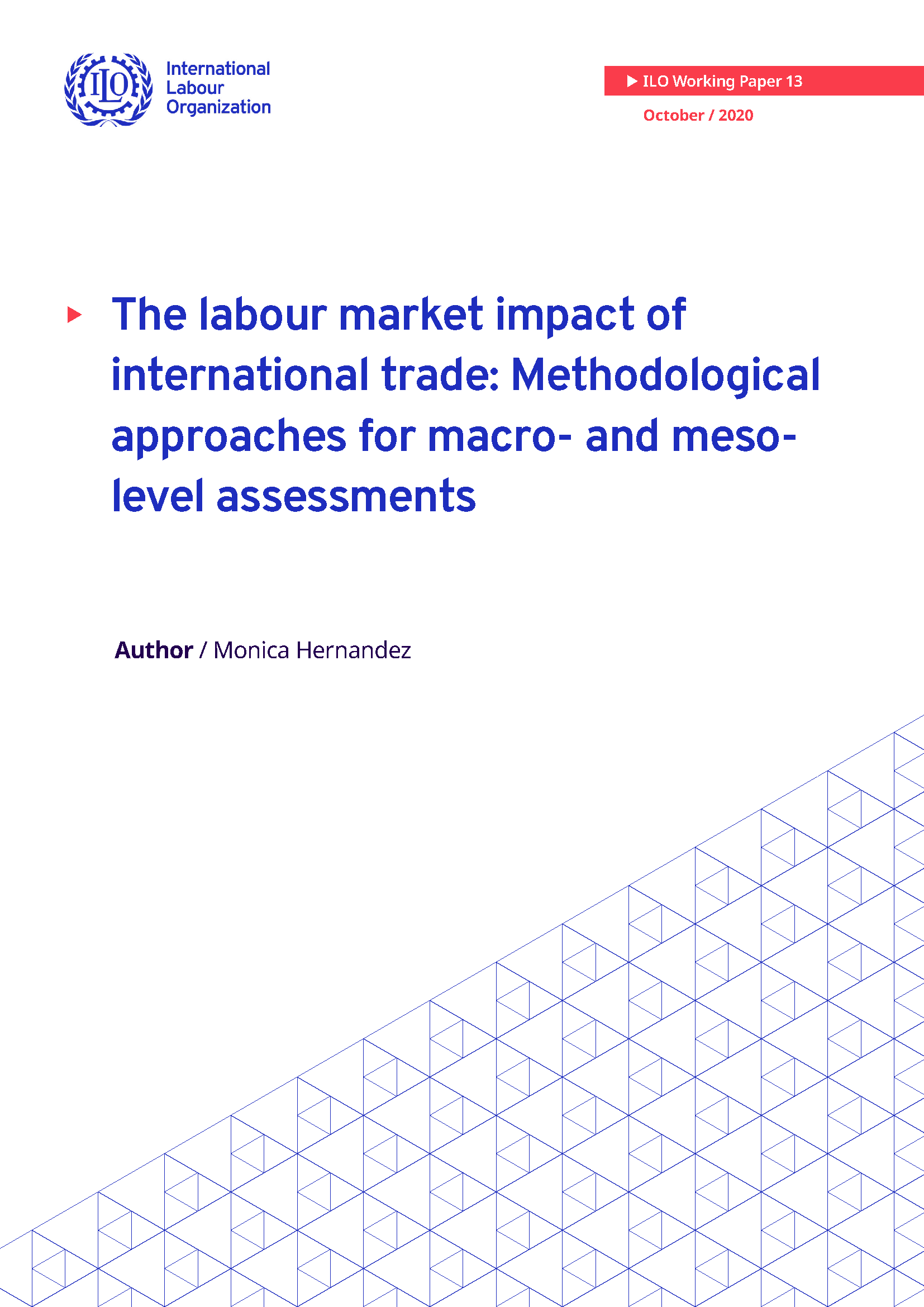
ILO Working paper 13
The labour market impact of international trade: Methodological approaches for macro- and meso-level assessments
20 October 2020
The paper presents an analysis of methodological approaches commonly used for the empirical assessment of international trade on labour market outcomes at the macro and meso level. It explains how mixed-methods and the use of a broader set of indicators could improve the analysis of qualitative aspects of the labour market related to working conditions.
-
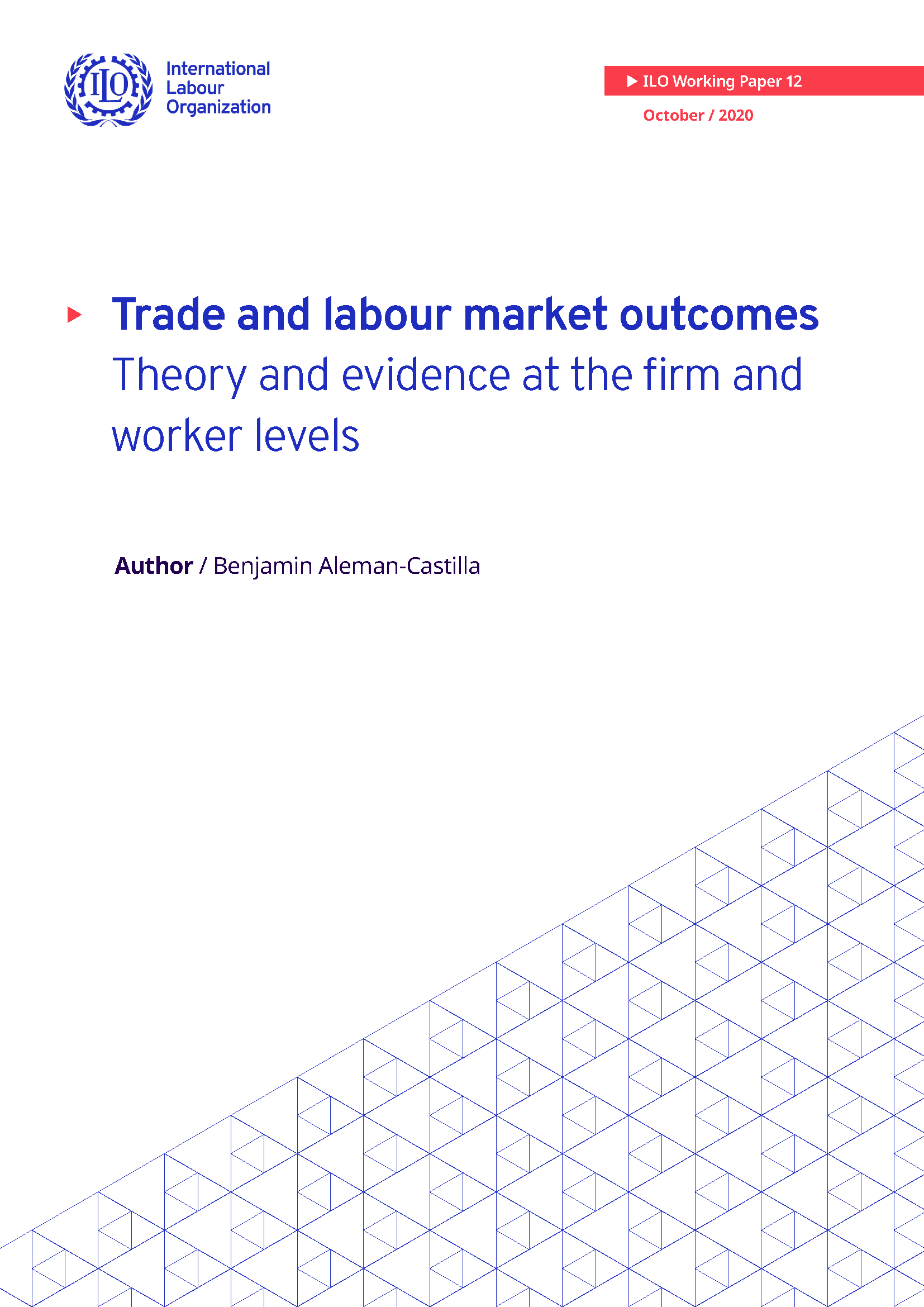
ILO Working paper 12
Trade and labour market outcomes: Theory and evidence at the firm and worker levels
20 October 2020
This paper surveys the literature on the impact of international trade on firms and workers. It also discusses the challenges for future research and the need for developing new statistical indicators that better reflect the dimensions of decent work.
August 2020
-
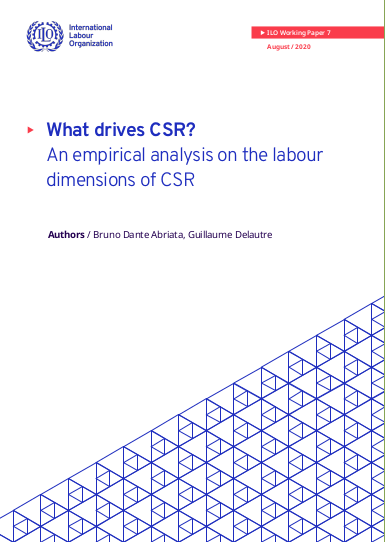
ILO Working paper 7
What drives CSR? An empirical analysis on the labour dimensions of CSR
05 August 2020
Relying on the data provided by an ESG rating agency, this paper aims at bringing more understanding on the diversity of firms’ behaviours in terms of labour related CSR and filling a gap on the potential role of labour market institutions, including workers’ collective rights, to contribute to an effective CSR policy.
June 2020
-
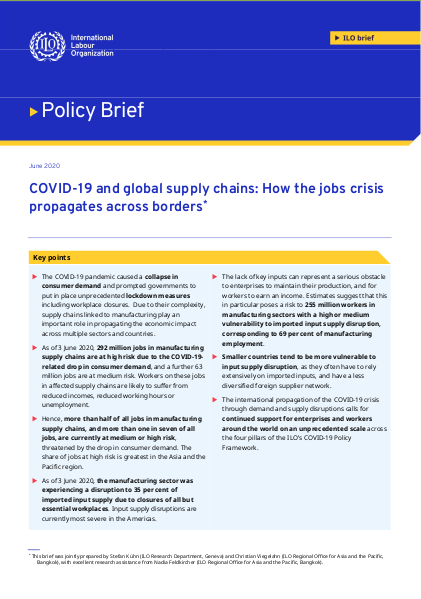
Policy brief
COVID-19 and global supply chains: How the jobs crisis propagates across borders
29 June 2020
This brief investigates the international propagation through global supply chains of the demand and supply disruptions caused by the COVID-19 crisis. It provides estimates of the number of jobs in manufacturing supply chains that are at risk as a result of those disruptions.
-
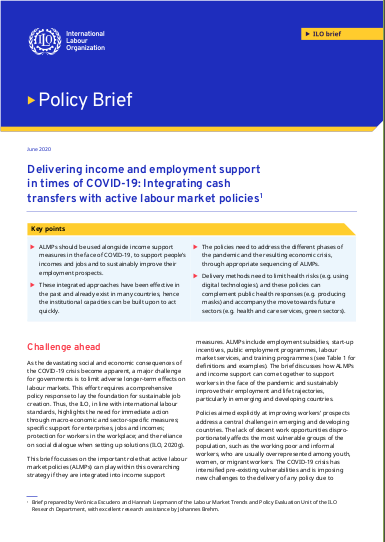
Briefing note
Delivering income and employment support in times of COVID-19: Integrating cash transfers with active labour market policies
18 June 2020
This brief examines how income support and active labour market policies can come together to improve workers' prospects in times of COVID-19, particularly in emerging and developing countries. It identifies the characteristics that determined the success of such polices in the past, and discusses how they can be adapted to today’s pandemic to contribute to rebuilding employment opportunities.
April 2020
-
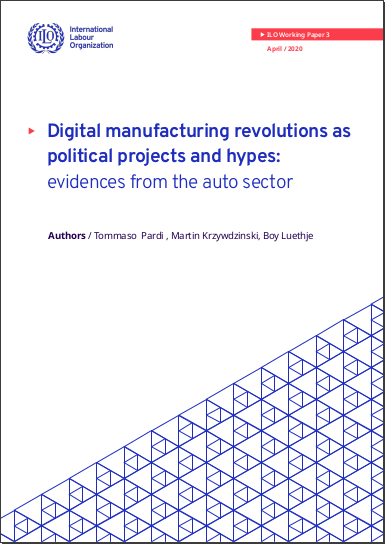
ILO Working paper 3
Digital manufacturing revolutions as political projects and hypes: evidences from the auto sector
27 April 2020
The article analyses the evolution of automotive manufacturing technologies and organisations and assesses the impact of “fourth industrial revolution” concepts and policies (in Germany, US and China) in particular for employment and work.
-
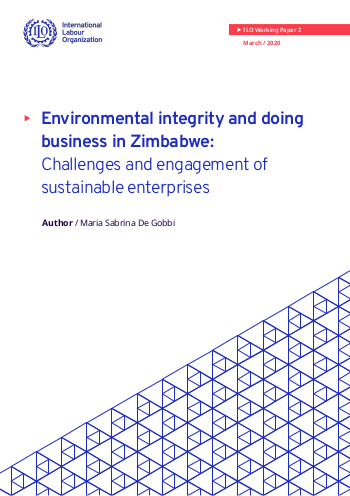
ILO Working paper 2
Environmental integrity and doing business in Zimbabwe: Challenges and engagement of sustainable enterprises
01 April 2020
The objective of this paper is to explore the views of different groups of the business community, including workers, managers and owners of the formal as well as of the informal economy, on how environmental integrity is being pursued in Zimbabwe. Both quantitative and qualitative/interpretative methods have been applied. The paper concludes suggesting actions that the private sector can adopt to improve the existing situation and further strengthen its engagement towards environmental integrity in the country.
January 2020
-
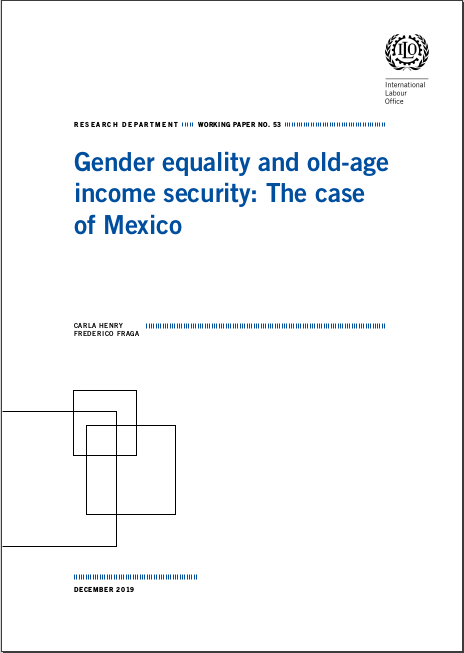
Research Department Working Paper n°53
Gender inequality and old-age income security: The case of Mexico
21 January 2020
October 2019
-
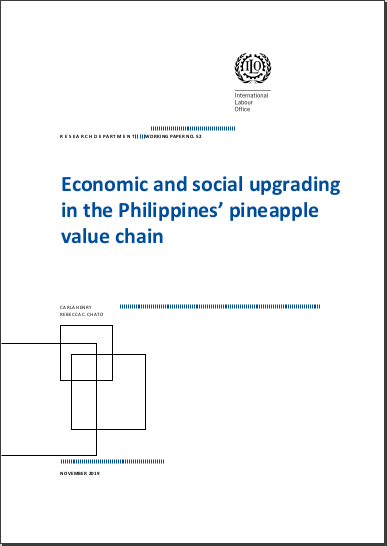
Research Department Working Paper n°52
Economic and social upgrading in the Philippines’ pineapple supply chain
19 October 2019
Despite several decades of steady growth, Mindanao’s tropical agro-food industry and the pineapple supply chain more specifically are characterized by a relatively large proportion of workers being linked to small-scale production and low-skilled, labour-intensive and poorly paid work. What is the evidence regarding the alignment between economic improvement of the local industry and the quality and terms of employment realized by its workers?